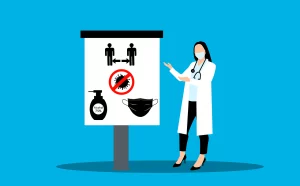Book Appointment Now

200 + Top Nursing Essay Topics for Your Upcoming Assignment
Writing an engaging nursing essay is an essential part of a student’s academic journey. Whether you’re tackling a challenging assignment or preparing for a major exam, selecting the right nursing essay topics is critical for success. But what are nursing essays exactly, and how do you choose the right topic?
A nursing essay is a specialized piece of academic writing that showcases a student’s knowledge, understanding, and critical thinking about various healthcare and nursing-related issues. From addressing nursing argumentative essay topics to responding to nursing essay questions and answers, these essays require thorough research and a deep understanding of healthcare practices. For those new to this type of writing, exploring nursing essay examples can provide valuable insight into structure, style, and content.
If you’re unsure how to write a nursing topic or how to start an essay in nursing, it helps to narrow down your focus. For example, reviewing a what is a nursing essay topic PDF can be a helpful resource, offering a wide range of topics and ideas in one place. It’s also common to find what is a nursing essay topic 150 words to kickstart your brainstorming process.
The challenge lies not only in selecting the right topic but also in mastering nursing essay writing. A strong topic must align with your interest and demonstrate your ability to apply theory to practice. Whether you’re writing an essay for nursing students or exploring complex nursing argumentative essay topics, clear organization and a well-researched argument are essential.
With a structured approach and a strong grasp of the subject, writing a nursing essay becomes less daunting. By reflecting on previous nursing essay examples and knowing how to start an essay in nursing, you’ll be well-equipped to craft compelling essays on topics that matter most in healthcare today.
Table of Contents
- Mental Health Nursing Essay Topics
- Trauma and Acute Care Nursing Essay Topics
- Interesting Nursing Essay Topics Ideas
- Evidence-Based Practice Nursing Essay Topics
- Compare and Contrast Nursing Essay Topics
- Nursing Argumentative Essay Topics
- Persuasive Nursing Essay Topics
- Nursing Admission Essay Topics
- Nursing Informatics Essay Topics
- Public Health Nursing Topics
- Infection Control/Prevention Nursing Topics
- Midwife, Neonatal, and Pediatric Nursing Essay Topics
- Reflective Nursing Essay Topics
- Nursing Leadership Essay Topics
- Patient Safety and Ethics Nursing Topics
Let’s dive and unearth some of the top nursing essay topics for the next paper
Mental Health Nursing Essay Topics

Mental health nursing plays a vital role in providing specialized care for individuals dealing with psychological disorders. With the increasing prevalence of mental health conditions, understanding the challenges in mental health nursing is essential for improving patient outcomes. Nursing care for mental health patients involves a variety of interventions aimed at supporting recovery, managing symptoms, and enhancing overall well-being. The role of mental health nurse practioner goes beyond traditional care, requiring a deep understanding of psychiatric conditions, empathy, and the ability to manage complex situations. Effective psychiatric nursing interventions and evidence-based mental health nursing practices help in creating a therapeutic environment that fosters healing and trust. Read a sample paper about Psychiatric mental health nursing paractitioner.
The following are key topics in mental health nursing, offering insights into the skills and knowledge you need for your next paper.
The Role of Mental Health Nurses in Managing Depression in Young Adults
- Exploring how mental health nurses help individuals cope with depression and the therapeutic techniques used.
The Impact of Stigma on Mental Health Patients and the Role of Nurses in Reducing It
- Analyzing how societal perceptions affect mental health patients and the nurse’s role in breaking down these stigmas
The Effectiveness of Cognitive Behavioral Therapy (CBT) in Mental Health Nursing Practice
- Examining the use of CBT by mental health nurses in treating conditions like anxiety and depression.
Strategies for Managing Anxiety Disorders in Psychiatric Nursing
- A detailed look at the nursing interventions for patients with generalized anxiety disorder and other anxiety-related conditions.
The Role of Nurses in Suicide Prevention Among Patients with Mental Health Issues
- Investigating how nurses can identify suicidal tendencies and implement preventive measures.
The Challenges of Providing Care for Patients with Bipolar Disorder: A Nursing Perspective
- Focusing on the specific nursing challenges when treating patients with mood swings and extreme emotional states.
Crisis Intervention: How Mental Health Nurses Manage Acute Psychiatric Episodes
- Discussing the techniques used in psychiatric crisis management, including de-escalation strategies.
Mental Health Nursing in the Face of Substance Abuse Disorders
- Exploring the role of mental health nurses in treating co-occurring substance abuse and mental health disorders.
The Role of Nurses in Supporting Families of Patients with Schizophrenia
- Examining the role of mental health nurses in educating and supporting families dealing with schizophrenia.
The Use of Psychotropic Medications: Ethical Issues for Mental Health Nurses
- Addressing the ethical challenges surrounding the administration of psychiatric medications in nursing practice.
Community Mental Health Nursing: Approaches to Supporting Patients Outside of the Hospital Setting
- Looking at how mental health nurses help patients transition from hospital to community care environments.
Cultural Sensitivity in Mental Health Nursing: Providing Care to Diverse Populations
- Understanding how mental health nurses adapt their care to respect cultural and ethnic diversity in patients.
The Role of Psychiatric Nurses in Managing Eating Disorders: Challenges and Strategies
- Exploring the nursing interventions that help manage disorders like anorexia and bulimia in clinical settings.
The Impact of Trauma-Informed Care on Mental Health Nursing Practice
- Analyzing how trauma-informed care practices can improve outcomes for patients who have experienced traumatic events.
The Role of Mental Health Nurses in Rehabilitation Programs for Patients with Post-Traumatic Stress Disorder (PTSD)
Trauma and Acute Care Nursing Essay Topics

Trauma and acute care nursing require a unique set of skills to manage critically ill or injured patients in high-pressure environments. Nurses in this field must address a wide range of conditions, from severe injuries to life-threatening emergencies. Understanding the challenges in trauma nursing and the role of acute care nurses is essential for providing effective interventions and ensuring patient survival. These professionals are trained to deliver rapid, efficient care, using specialized acute care nursing practices and evidence-based techniques to stabilize patients. From emergency room scenarios to intensive care units, trauma nurses face both physical and emotional challenges daily.
Below are key topics in trauma and acute care nursing, offering insights into the skills and knowledge you need for your next paper.
The Role of Trauma Nurses in Emergency Departments: Challenges and Responsibilities
- Exploring the responsibilities of trauma nurses in fast-paced emergency settings and the skills required to manage critical cases.
Nursing Interventions in Acute Traumatic Brain Injury (TBI) Care
Examining the strategies nurses use to provide effective care for patients with traumatic brain injuries.
The Importance of Quick Decision-Making in Trauma Nursing
- Discussing how trauma nurses balance rapid assessment and decision-making with patient care and safety.
Nursing Approaches to Managing Multiple Trauma Patients
- Investigating nursing strategies for managing patients with multiple traumatic injuries and the prioritization of care.
Acute Care Nursing in the Management of Burn Victims
- Examining the specific challenges and interventions used by nurses in the care of patients with severe burns.
Psychological Support for Trauma Patients: The Role of Nurses
- Exploring how nurses can provide emotional and psychological support to trauma patients experiencing anxiety, fear, or PTSD.
Nursing Care in Trauma Resuscitation: Techniques and Best Practices
- A deep dive into the techniques used by nurses during trauma resuscitation and their impact on patient outcomes.
The Role of Acute Care Nurses in Post-Surgical Trauma Recovery
- Analyzing how nurses support patients during the critical recovery period following traumatic surgeries.
Trauma-Informed Care in Acute Care Nursing
- Discussing the implementation of trauma-informed care approaches and their importance in acute care nursing.
Pediatric Trauma: Nursing Care and Interventions in Emergency Settings
- Exploring the unique challenges and strategies in providing trauma care to pediatric patients in emergency departments.
The Impact of Fatigue on Trauma and Acute Care Nurses: Risks and Management
- Investigating how long shifts and stress impact the performance and well-being of trauma and acute care nurses.
Nursing Strategies for Managing Patients with Acute Respiratory Distress Syndrome (ARDS) After Trauma
- A closer look at how acute care nurses manage patients who develop ARDS following traumatic injury.
Acute Care Nursing in the Treatment of Gunshot Wounds
- Analyzing the nursing care strategies used to manage gunshot wound patients and the challenges involved in high-violence areas.
Nurses Role in Mass Casualty Incidents: Preparedness and Response
- Investigating how trauma nurses are trained to respond to mass casualty incidents, including triage and critical care interventions.
Interesting Nursing Essay Topics Ideas

Nursing is a diverse and evolving field, offering a wealth of engaging topics that explore the profession’s many dimensions. From ethical dilemmas to cutting-edge healthcare technologies, there are countless opportunities to delve into areas that inspire curiosity and debate. Understanding the variety of nursing challenges and innovations allows students and professionals alike to explore important nursing practices and trends. Whether you’re interested in nursing education, patient care strategies, or healthcare policy, selecting the right topic is key to crafting an insightful essay.
Here are some interesting nursing essay topics ideas for your next paper.
The Evolution of Nursing Practice: From Florence Nightingale to Modern-Day Nursing
- Exploring the historical development of nursing practices and how they have shaped current healthcare systems.
The Role of Telemedicine in Modern Nursing: Opportunities and Challenges
- Analyzing how nurses are adapting to telemedicine and virtual care, and the impact on patient care and nursing roles.
How Technology is Transforming Patient Care: The Role of Nurses in Digital Healthcare
- Examining the integration of healthcare technologies, such as electronic health records and AI, in nursing practice.
Ethical Dilemmas in Nursing: Balancing Patient Autonomy and Caregiver Responsibility
- Discussing common ethical issues nurses face, such as end-of-life care, informed consent, and patient autonomy.
The Impact of Nurse-to-Patient Ratios on Quality of Care and Patient Outcomes
- Investigating how staffing ratios affect patient outcomes and nursing stress, and the policies in place to manage this issue.
Nursing in the Age of Pandemics: Lessons Learned from the COVID-19 Crisis
- Reflecting on the challenges faced by nurses during the COVID-19 pandemic and the changes it brought to the profession.
Cultural Competency in Nursing: Providing Care in a Multicultural Society
- Examining how nurses can deliver culturally sensitive care to diverse populations and the importance of cultural competency training.
The Role of Nurse Practitioners in Filling Healthcare Gaps in Rural and Underserved Areas
- Discussing the critical role of nurse practitioners in providing healthcare access in areas with physician shortages.
Workplace Violence Against Nurses: Causes, Impacts, and Prevention Strategies
- Exploring the prevalence of violence against nurses in healthcare settings and strategies to mitigate the risks.
The Future of Nursing Education: Preparing the Next Generation of Nurses for Changing Healthcare Needs
- Investigating the changes in nursing education, such as simulation-based learning and inter-professional education.
Nursing Care for Aging Populations: Addressing the Needs of an Increasingly Older Society
- Discussing the specific challenges and strategies in providing care to elderly patients, including chronic disease management and end-of-life care.
The Role of Nurses in Palliative and Hospice Care: Providing Comfort and Dignity at the End of Life
- Analyzing the emotional, ethical, and practical aspects of nursing care for patients in palliative and hospice settings.
Mental Health and Well-Being of Nurses: Managing Stress, Burnout, and Compassion Fatigue
- Investigating the causes of burnout in nursing and the importance of mental health support systems for nurses.
Nurses as Advocates: The Role of Nurses in Health Policy and Patient Advocacy
- Exploring how nurses influence healthcare policies and advocate for patient rights and better healthcare systems.
The Impact of Gender Stereotypes on Nursing as a Profession
- Examining how gender dynamics affect the nursing profession and the perception of male and female nurses in healthcare.
Get a custom nursing essay help? ![]()
Evidence-Based Practice Nursing Essay Topics

Evidence-based practice (EBP) has become a cornerstone of modern nursing, ensuring that clinical decisions are guided by the best available research. Nurses use evidence-based nursing practices to enhance patient care, improve outcomes, and maintain high standards in healthcare settings. Understanding the principles of EBP allows nurses to apply research findings to real-world challenges, promoting safer, more effective care. By exploring a variety of evidence-based practices, nurses can stay at the forefront of healthcare innovation. Below are some essential topics that can provide a strong foundation for your next nursing essay.
Check out: Ethics And Evidence-Based Research
The Role of Evidence-Based Practice in Improving Patient Safety and Outcomes
- Examining how EBP leads to better patient outcomes and reduces medical errors in nursing practice.
The Use of Evidence-Based Practice in Infection Control: Best Nursing Strategies
- Analyzing the implementation of evidence-based strategies for infection prevention in clinical settings.
Implementing Evidence-Based Practice to Reduce Hospital Readmissions
- Exploring the nursing interventions that use EBP to lower hospital readmission rates, especially in patients with chronic conditions.
Evidence-Based Pain Management in Post-Surgical Nursing Care
- Discussing how EBP has improved pain management protocols for post-operative patients in nursing.
The Effectiveness of Hand Hygiene Protocols: An Evidence-Based Nursing Approach
- Investigating the impact of hand hygiene practices on reducing hospital-acquired infections based on evidence-based research.
Evidence-Based Strategies for Managing Pressure Ulcers in Long-Term Care Nursing
- Analyzing the use of EBP in the prevention and management of pressure ulcers in elderly and immobile patients.
The Use of Evidence-Based Practice in Managing Diabetes in Nursing
- Exploring how EBP improves patient care, education, and outcomes for individuals with diabetes.
Improving Patient Outcomes with Evidence-Based Nursing Interventions for Hypertension
- Examining how EBP has transformed hypertension management, including nursing interventions that promote lifestyle changes and medication adherence.
The Role of Evidence-Based Practice in Reducing Catheter-Associated Urinary Tract Infections (CAUTI)
- Analyzing the best practices supported by research to minimize CAUTI occurrences in hospitalized patients.
EBP in Mental Health Nursing: Evidence-Based Approaches to Treating Depression
- Investigating how evidence-based therapeutic techniques like Cognitive Behavioral Therapy (CBT) are applied in nursing care for depression.
The Role of EBP in Reducing the Incidence of Falls in Hospitalized Patients
- Discussing the evidence-based fall prevention programs that nurses implement to reduce fall risks among vulnerable patients.
Evidence-Based Practice in Wound Care: Best Nursing Interventions
- Exploring how EBP guides the selection of wound care products and techniques for optimal healing outcomes.
The Impact of EBP on Nursing Care in Emergency Departments
- Examining how evidence-based triage, pain management, and resuscitation techniques have improved patient care in emergency settings.
Evidence-Based Practice for Improving Postpartum Care in Nursing
- Discussing the EBP protocols that improve maternal and infant outcomes in the postpartum period.
The Role of Evidence-Based Practice in Nursing Education: Training Future Nurses
- Analyzing how EBP is integrated into nursing curricula to prepare new nurses for research-driven practice.
Get a custom EBP nursing essay? ![]()
Compare and Contrast Nursing Essay Topics

Compare and contrast essays offer an excellent way to explore the similarities and differences between various aspects of nursing practice. These essays can reveal how different nursing roles, care approaches, or healthcare settings influence patient outcomes and professional challenges. By examining the distinctions between nursing practices, students can gain deeper insights into the complexities of healthcare. Whether comparing nursing care in rural vs. urban settings or contrasting traditional nursing methods with modern evidence-based practices, these topics provide ample opportunities for thoughtful analysis. Here are some compelling ideas to help you develop a meaningful essay.
Nurse Practitioners vs. Registered Nurses: Scope of Practice and Responsibilities
- Comparing the roles, responsibilities, and autonomy of nurse practitioners (NPs) and registered nurses (RNs) in healthcare.
Traditional Nursing Education vs. Simulation-Based Learning
- Analyzing the differences in outcomes, skills development, and preparedness between traditional nursing education methods and the use of simulations.
Inpatient Nursing Care vs. Outpatient Nursing Care
- Comparing the responsibilities, patient interactions, and challenges faced by nurses in inpatient hospital settings versus outpatient or ambulatory care environments.
Public Health Nursing vs. Clinical Nursing
- Exploring the differences in focus, patient populations, and approaches between public health nurses working in communities and clinical nurses working in healthcare settings
Nursing Care for Pediatric Patients vs. Geriatric Patients
- Comparing the nursing approaches, challenges, and patient needs when caring for pediatric patients versus elderly patients.
Acute Care Nursing vs. Long-Term Care Nursing
- Analyzing the differences in roles, patient outcomes, and day-to-day nursing duties in acute care (hospital-based) versus long-term care (nursing homes or assisted living).
Evidence-Based Practice vs. Traditional Nursing Practices
- Comparing the use of evidence-based practice (EBP) to traditional, experience-based nursing approaches and how they influence patient outcomes.
Nursing in Developed Countries vs. Nursing in Developing Countries
- Examining the differences in healthcare resources, nurse-to-patient ratios, and the challenges faced by nurses in high-income versus low-income countries.
Nursing Leadership vs. Nursing Management
- Comparing the roles, responsibilities, and impact of nursing leaders (inspiring and guiding teams) versus nursing managers (organizing and administering teams).
Preventive Care Nursing vs. Curative Care Nursing
- Analyzing the roles of nurses in preventive health measures (vaccinations, screenings) versus those providing curative care (treatments and interventions).
Nursing Approaches to Physical Health vs. Mental Health
- Exploring how nursing interventions differ when addressing physical health conditions (like diabetes or hypertension) versus mental health conditions (like depression or schizophrenia).
Emergency Nursing vs. Critical Care Nursing
- Comparing the responsibilities, skills, and stress levels of nurses working in emergency rooms versus those in critical care units (ICUs).
Primary Care Nursing vs. Specialty Care Nursing
- Examining the differences between nurses working in primary care settings (general health services) versus those in specialty areas (oncology, cardiology, etc.).
Nursing Interventions for Acute Pain vs. Chronic Pain
- Analyzing how nurses approach the management of acute pain (short-term, post-surgery) versus chronic pain (long-term, conditions like arthritis).
Collaborative Nursing vs. Autonomous Nursing: Differences in Care Delivery Models
- Comparing the collaborative approach (team-based care) with autonomous nursing (nurses making independent decisions) in different healthcare settings.
Nursing Argumentative Essay Topics

Nursing is filled with important and often controversial issues that impact patient care, healthcare policies, and the profession itself. Writing an argumentative essay allows you to explore these topics by taking a clear stance on debates such as nurse autonomy, mandatory vaccinations, or staffing ratios. These essays not only sharpen your critical thinking but also allow you to delve deeper into current issues that affect healthcare systems globally.
Below are several thought-provoking topics to help you construct a compelling argumentative nursing essay.
Should Nurse Practitioners Have Full Practice Authority Without Physician Supervision?
- Arguing for or against granting nurse practitioners the ability to practice independently of physicians, particularly in primary care settings
Is Mandatory Nurse-Patient Ratios Essential for Improving Patient Outcomes?
- Discussing whether enforcing nurse-to-patient ratios should be mandated by law to ensure better patient care and nurse well-being.
Should Nurses Have the Right to Refuse Care Based on Personal Ethical Beliefs?
- Exploring whether nurses should be allowed to refuse certain treatments (such as abortion or assisted suicide) based on moral or religious grounds. Read also: Ethics in healthcare
Is the Use of Artificial Intelligence (AI) in Nursing Beneficial or Detrimental to Patient Care?
- Arguing the pros and cons of integrating AI technologies into nursing practice and how it affects patient outcomes and job security for nurses.
Should Vaccinations Be Mandatory for All Healthcare Workers, Including Nurses?
- Discussing whether healthcare institutions should make vaccinations, such as the flu or COVID-19 vaccines, mandatory for all nursing staff.
Should Nurses Be Allowed to Prescribe Medications Without Physician Oversight?
- Arguing whether nurses, particularly advanced practice nurses, should have prescriptive authority in all healthcare settings.
Is It Ethical to Mandate Long Shifts for Nurses in High-Demand Settings?
- Discussing the ethical implications and potential patient safety concerns of long nursing shifts (12-16 hours) in hospitals and emergency departments.
Should There Be Universal Healthcare to Alleviate the Burden on Nurses and Improve Patient Care?
- Arguing whether the implementation of a universal healthcare system would benefit nursing staff and improve the overall quality of care.
Get a custom argumentative nursing essay? ![]()
Other appropriate healthcare argumentative essay topics can be drawn from this list;
- Should newborn vaccination be mandatory
- Technological advancements in nursing
- Dealing with depression: following nursing practices
- Empowering nurses via evidence-based practice
- Global health perspectives: international nursing practices
- Managing chronic illness: a nursing approach
- Mental health and burnout in nursing
- Nursing education and professional development
- Nursing ethics: delicate balances in decision-making
- Nursing leadership and management
- Nutritional effects on prenatal development
- Personal philosophy of nursing
- The Role of communication in nursing
- The role of gender in nursing
- The role of nursing in telehealth
Persuasive Nursing Essay Topics

Nursing offers a broad range of issues where persuasive arguments can inspire change, whether in practice, policy, or patient care. Writing a persuasive essay allows you to advocate for improvements such as better nurse-patient ratios, the need for continuing education, or enhanced mental health support for healthcare workers. By crafting well-reasoned arguments, you can influence opinions and highlight the importance of these issues in the nursing field.
Here are key topics designed to help you write a compelling persuasive paper that engages and informs your audience.
Nurse Burnout: Why Hospitals Must Implement More Mental Health Support Programs for Nurses
- Persuade readers on the importance of providing mental health resources for nurses to prevent burnout and improve patient care
Why All Hospitals Should Enforce a Strict Nurse-Patient Ratio Policy
- Argue for the implementation of regulated nurse-to-patient ratios to enhance patient outcomes and reduce nurse stress.
The Case for Expanding the Role of Nurses in Primary Healthcare
- Persuade readers on why nurses should be granted more autonomy in primary care settings, especially in rural and underserved areas.
Why Nurses Should Play a More Active Role in Health Policy Development
- Make the case for increased nurse involvement in shaping healthcare policies due to their frontline experience with patient care.
Why Hospitals Should Make Continuing Education Mandatory for All Nurses
- Argue the benefits of mandatory continuing education for nurses to ensure they stay updated on the latest medical advancements and best practices.
Why Nurse Practitioners Should Have Prescriptive Authority in All 50 States
- Persuade readers that nurse practitioners should be allowed to prescribe medications without physician oversight in all states to improve healthcare access.
The Importance of Cultural Competency Training for All Nurses
- Convince readers that cultural competency should be a mandatory part of nursing education to provide better care for diverse patient populations.
Why Vaccination Should Be Mandatory for Nurses in Healthcare Settings
- Argue that all nurses should be required to get vaccinated (e.g., flu, COVID-19) to protect themselves, patients, and the public from infectious diseases.
The Case for Increasing Nurse Salaries to Reflect Their Critical Role in Healthcare
- Persuade readers that nurses’ salaries should be raised to reflect the high level of responsibility, stress, and care they provide.
Why Every Nurse Should Be Trained in Mental Health First Aid
- Argue the importance of mental health first aid training for all nurses to better handle mental health crises and support patients holistically.
The Need for Flexible Work Schedules for Nurses to Prevent Burnout
- Persuade readers that offering flexible work schedules to nurses can reduce burnout and improve both job satisfaction and patient care.
Why Hospitals Should Ban the Use of Physical Restraints on Patients
- Argue that physical restraints are outdated and unethical, and hospitals should implement alternative methods for managing agitated patients.
The Importance of Trauma-Informed Care Training for Nurses
- Convince readers that trauma-informed care should be part of standard nursing training to improve care for patients with a history of trauma.
Why Nurses Should Be Allowed to Refuse Unsafe Patient Assignments
- Argue that nurses should have the right to refuse patient assignments that compromise their safety or ability to provide adequate care due to high workloads.
The Case for Establishing Nurse-Only Emergency Rooms for Minor Medical Issues
- Persuade readers that nurse-led emergency rooms for minor conditions could reduce overcrowding and wait times in traditional ERs while providing efficient care.
Get a custom persuasive nursing paper? ![]()
Nursing Admission Essay Topics

Writing a nursing admission essay is a crucial step in your journey to joining the nursing profession. These essays allow you to reflect on your motivations, showcase your strengths, and share the experiences that shaped your desire to become a nurse. Whether discussing your passion for patient care, your ability to overcome challenges, or your vision for the future of nursing, selecting the right topic can make your application stand out.
The following are some thoughtful essay topics to help you craft a compelling narrative for your nursing school admission.
What Inspired You to Pursue a Career in Nursing?
- Reflect on the personal experiences, people, or events that inspired you to choose nursing as your career path.
Describe a Time You Demonstrated Compassion and How It Reinforced Your Decision to Become a Nurse
- Discuss a specific situation where you showed compassion and how it strengthened your desire to work in healthcare.
How Have Your Life Experiences Prepared You for a Career in Nursing?
- Highlight how personal challenges or unique experiences have equipped you with the resilience and skills needed for nursing.
Why Do You Want to Attend This Nursing Program, and How Will It Help You Achieve Your Career Goals?
- Explain why the specific nursing school or program appeals to you and how it aligns with your long-term career objectives.
Describe a Healthcare-Related Experience That Made You Want to Become a Nurse
- Discuss a time you interacted with the healthcare system, either as a patient, volunteer, or caregiver, and how it influenced your decision to become a nurse.
How Do You Plan to Make a Difference in the Nursing Profession?
- Share your vision for your nursing career and how you hope to contribute to patient care, healthcare systems, or the nursing community.
What Personal Qualities Do You Possess That Will Make You a Successful Nurse?
- Discuss traits such as empathy, communication skills, adaptability, or teamwork, and how they will help you excel as a nurse.
What Challenges Do You Anticipate in Nursing School, and How Will You Overcome Them?
- Reflect on potential academic, personal, or emotional challenges in nursing school and how you plan to address them.
How Has Volunteering or Working in a Healthcare Setting Influenced Your Desire to Become a Nurse?
- Discuss any healthcare-related work or volunteer experience and how it has shaped your understanding of nursing.
Describe a Situation Where You Had to Take Initiative and How It Prepared You for Nursing
- Share a time when you took responsibility in a difficult situation and how it demonstrated skills you’ll need as a nurse.
How Do You Plan to Stay Resilient in the Face of the Emotional and Physical Demands of Nursing?
- Explain how you will cope with the stresses of nursing, including maintaining self-care and managing emotional fatigue.
What Does the Concept of “Caring” Mean to You as a Future Nurse?
- Reflect on what caring means in the context of nursing and how you plan to embody this value in your professional career.
Describe a Time You Worked Effectively in a Team and How It Will Help You as a Nurse
- Highlight an experience where teamwork was crucial and how it relates to the collaborative nature of nursing.
How Will You Contribute to Diversity and Inclusion in the Nursing Profession?
- Discuss how your background, perspectives, or experiences will enhance the cultural competence and inclusiveness of the nursing field.
What Does Nursing Mean to You, and How Do You Envision Yourself Growing in This Profession?
- Provide a personal definition of nursing and outline your goals for professional growth, such as specialization or leadership aspirations.
Get a custom admission nursing essay? ![]()
Nursing Informatics Essay Topics

Nursing informatics is revolutionizing the way healthcare is delivered, integrating technology with nursing practice to improve patient outcomes and streamline processes. As nurses increasingly rely on data management, electronic health records (EHRs), and telemedicine, understanding the role of informatics has become essential in modern healthcare. Writing about nursing informatics allows you to explore its impact on patient care, efficiency, and the future of nursing practice.
These topics that will help you delve deeper into this dynamic and evolving field.
The Role of Nursing Informatics in Enhancing Patient Care and Safety
- Discuss how nursing informatics improves patient outcomes by streamlining care, reducing errors, and supporting clinical decision-making.
The Impact of Electronic Health Records (EHRs) on Nursing Practice
- Analyze how the implementation of EHRs has transformed nursing workflows, patient documentation, and communication among healthcare professionals.
How Nursing Informatics Supports Evidence-Based Practice
- Explore how informatics tools facilitate access to research, data analysis, and evidence-based interventions in nursing practice.
Challenges and Solutions in Implementing Nursing Informatics Systems
- Identify the barriers to integrating informatics into nursing practice, such as technical issues, training gaps, and resistance to change, and propose solutions.
The Role of Nurse Informaticists in Healthcare IT Development
- Examine how nurse informaticists contribute to the design, implementation, and optimization of healthcare IT systems to support clinical care.
Telehealth and Nursing Informatics: A New Era of Remote Care
- Analyze how telehealth technologies, supported by informatics, have expanded nursing practice, particularly in rural or underserved populations.
Improving Patient Data Security and Privacy in Nursing Informatics
- Discuss the ethical and legal considerations of patient data protection in the digital age, including HIPAA compliance and cybersecurity measures.
The Role of Big Data in Predictive Analytics for Nursing Care
- Explore how big data and predictive analytics are used in nursing informatics to identify trends, improve patient outcomes, and anticipate healthcare needs.
The Future of Artificial Intelligence in Nursing Informatics
- Analyze the potential impact of AI and machine learning on nursing tasks, decision-making processes, and patient care optimization.
The Importance of Interoperability in Nursing Informatics Systems
- Discuss the significance of creating interoperable systems that allow seamless communication between different healthcare technologies and providers.
The Impact of Mobile Health (mHealth) Technologies on Nursing Practice
- Explore how mobile apps and wearable health devices are influencing nursing care, patient monitoring, and health education.
The Role of Nursing Informatics in Managing Chronic Diseases
- Examine how informatics supports chronic disease management through patient monitoring, data collection, and tailored interventions.
Bridging the Gap Between Clinical and IT Departments: The Nurse Informaticist’s Role
- Analyze how nurse informaticists act as intermediaries between clinical staff and IT professionals to ensure that healthcare technologies meet nursing needs.
Training and Education in Nursing Informatics: Preparing Future Nurses
- Discuss the importance of integrating informatics education into nursing curricula and continuing education programs to prepare nurses for tech-driven healthcare environments.
How Nursing Informatics Supports Population Health Management
- Explore how informatics tools are used to manage and improve the health outcomes of populations by tracking health metrics, identifying at-risk groups, and implementing interventions.
Get a custom paper on nursing informatics? ![]()
Public Health Nursing Topics

Public health nursing focuses on improving the health of communities through prevention, education, and access to care. These nurses play a critical role in addressing health disparities, promoting disease prevention, and advocating for vulnerable populations. Whether tackling issues like infectious disease control, maternal health, or community health education, public health nurses are at the forefront of shaping healthier communities.
These are essential topics offerring valuable insights into the diverse and impactful world of public health nursing.
The Role of Public Health Nurses in Disease Prevention and Health Promotion
- Explore how public health nurses work in communities to educate, prevent diseases, and promote healthy lifestyles.
Addressing Health Disparities in Underserved Communities: The Role of Public Health Nursing
- Discuss how public health nurses target vulnerable populations and address health inequities, including access to care.
The Impact of Vaccination Campaigns Led by Public Health Nurses
- Analyze the role of public health nurses in organizing and leading vaccination programs, including challenges and successes.
Public Health Nursing in Disaster Preparedness and Response
- Examine how public health nurses contribute to emergency preparedness, disaster response, and post-disaster recovery efforts.
Maternal and Child Health: The Role of Public Health Nursing
- Discuss how public health nurses support maternal and child health through education, prenatal care, and community outreach programs.
The Role of Public Health Nurses in Managing Chronic Disease in Communities
- Explore how public health nurses manage and prevent chronic diseases like diabetes, hypertension, and heart disease in community settings.
Public Health Nursing Interventions to Address the Opioid Crisis
- Analyze the strategies used by public health nurses to combat the opioid epidemic, including education, harm reduction, and rehabilitation programs.
Community Health Needs Assessments: The Role of Public Health Nurses
- Discuss the importance of community health assessments conducted by public health nurses in identifying and addressing local health issues.
The Role of Public Health Nurses in Promoting Mental Health Awareness
- Explore the role of public health nurses in addressing mental health challenges and reducing the stigma associated with mental illness.
Public Health Nursing and Global Health: Addressing Health Challenges in Developing Countries
- Examine the role of public health nurses in global health initiatives, including efforts to improve healthcare access in low-income countries.
The Role of Public Health Nurses in Implementing Health Policy Changes
- Discuss how public health nurses advocate for and influence health policy at the local, state, and national levels to improve public health outcomes.
Public Health Nursing Strategies for Promoting Healthy Aging
- Explore how public health nurses promote healthy aging and address the healthcare needs of the elderly population in community settings.
Public Health Nursing in School Health Programs: Addressing Childhood Obesity
- Analyze the role of public health nurses in school-based programs aimed at reducing childhood obesity and promoting healthy lifestyles in children.
The Importance of Cultural Competency in Public Health Nursing
- Discuss how public health nurses incorporate cultural competency into their practice to provide effective care in diverse communities.
The Role of Public Health Nursing in Preventing the Spread of Infectious Diseases
- Examine the role of public health nurses in infection control, including contact tracing, education, and community outreach to prevent the spread of diseases like COVID-19, HIV, and tuberculosis.
Infection Control/Prevention Nursing Topics

Infection control is a vital aspect of nursing that significantly impacts patient safety and healthcare outcomes. By implementing effective infection prevention strategies, nurses can mitigate the risk of healthcare-associated infections and ensure a safer environment for patients.
The following are key topics in Infection Control/Prevention Nursing, offering insights into the skills and knowledge you need for your next paper.
The Role of Nurses in Reducing Hospital-Acquired Infections (HAIs)
- Discuss how nurses implement infection prevention strategies to reduce HAIs, including the use of personal protective equipment (PPE) and proper hand hygiene.
Best Practices for Hand Hygiene in Healthcare Settings: A Nursing Perspective
- Analyze the importance of proper hand hygiene and its impact on reducing the spread of infections in hospitals, nursing homes, and clinics.
The Role of Nurses in Preventing Surgical Site Infections (SSIs)
- Explore the nursing protocols and evidence-based practices that help prevent SSIs in post-operative patients.
Infection Control in Long-Term Care Facilities: Nursing Challenges and Strategies
- Discuss the unique infection control challenges faced by nurses in long-term care settings, including managing infections like MRSA and C. difficile.
The Impact of Antimicrobial Stewardship Programs on Nursing Practice
- Examine how nurses contribute to antimicrobial stewardship efforts to prevent antibiotic resistance and ensure the proper use of antibiotics.
Nurses’ Role in Preventing Catheter-Associated Urinary Tract Infections (CAUTIs)
- Discuss nursing interventions aimed at preventing CAUTIs, including catheter care protocols and timely removal strategies.
The Role of Infection Control Nurses in Outbreak Management
- Explore how infection control nurses play a key role in managing outbreaks within healthcare facilities, including contact tracing, isolation, and disinfection procedures.
Prevention of Ventilator-Associated Pneumonia (VAP): Nursing Interventions
- Analyze the specific nursing actions that help prevent VAP in critically ill patients, such as proper oral care and ventilator management.
Nursing Approaches to Reducing the Risk of Bloodborne Pathogen Transmission
- Examine how nurses protect themselves and patients from exposure to bloodborne pathogens, including the use of safe injection practices and sharps disposal.
The Role of Public Health Nurses in Preventing Community-Acquired Infections
- Discuss the community-based infection prevention efforts led by public health nurses, including vaccination campaigns, education, and outreach programs.
Infection Control in the Age of COVID-19: How Nursing Practice Has Evolved
- Explore the changes in infection prevention protocols that nurses have implemented due to the COVID-19 pandemic, including PPE use, isolation practices, and patient management.
The Role of Nurses in Preventing the Spread of Multidrug-Resistant Organisms (MDROs)
- Analyze how nurses prevent the transmission of MDROs like MRSA and VRE in healthcare settings, including isolation precautions and antibiotic stewardship.
Infection Prevention in Pediatric Nursing: Special Considerations for Immunocompromised Children
- Discuss the infection control challenges faced by pediatric nurses, particularly when caring for immunocompromised or critically ill children.
The Importance of Continuous Education for Nurses in Infection Control
- Explore the need for ongoing infection control training and education for nurses to stay updated on the latest guidelines and practices.
Infection Control in Home Healthcare: Nursing Strategies for Safe Patient Care
- Analyze the role of nurses in preventing infections in home healthcare environments, including proper wound care, hygiene, and patient education.
Get a custom nursing paper on Infection Control/Prevention ? ![]()
Midwife, Neonatal, and Pediatric Nursing Essay Topics

Midwife, neonatal, and pediatric nursing play crucial roles in ensuring the health and well-being of mothers and children. Focusing on maternal health, these specialties are essential for delivering quality care to expectant mothers and newborns.
The following are key topics in Midwife, Neonatal, and Pediatric Nursing, offering insights into the skills and knowledge you need for your next paper.
Popular Midwife Nursing Paper Topics
The Role of Midwives in Promoting Natural Childbirth: Benefits and Challenges
- Explore how midwives support natural childbirth, including the physical and emotional benefits, and the challenges they face in medicalized settings. Read also: Nursing and Midwifery
The Impact of Midwife-Led Care on Maternal and Infant Health Outcomes
- Discuss how midwife-led care models improve maternal and infant health outcomes compared to traditional obstetric care.
Cultural Sensitivity in Midwifery: Supporting Diverse Populations
- Explore the importance of cultural competence in midwifery and how midwives can provide culturally sensitive care to diverse patient populations.
Home Births vs. Hospital Births: The Role of Midwives in Ensuring Safe Delivery
- Compare the role of midwives in home births versus hospital births, focusing on safety protocols, risk management, and patient outcomes.
Top Neonatal Nursing Essay Topics
The Role of Neonatal Nurses in Supporting Premature Infants: Challenges and Best Practices
- Explore how neonatal nurses care for premature infants in NICUs, including challenges related to respiratory support, feeding, and growth monitoring
Neonatal Palliative Care: The Role of Nurses in Supporting Families Through Loss
- Discuss the responsibilities of neonatal nurses in providing compassionate end-of-life care for infants and supporting grieving families.
Also read:
- Nursing Impact in Maternal and Infant Mortality
- Discussion: Infant Mortality
- Assignment: Infant Mortality Rates
The Impact of Kangaroo Care in Neonatal Nursing: Promoting Bonding and Health
- Analyze the benefits of kangaroo care (skin-to-skin contact) in NICUs and how neonatal nurses facilitate this practice to improve infant outcomes.
Neonatal Nurses and the Prevention of Infections in Preterm Infants
- Explore infection control strategies used by neonatal nurses to protect preterm infants, who are especially vulnerable to infections.
The Role of Neonatal Nurses in Family-Centered Care
- Discuss how neonatal nurses involve families in the care of their newborns and the impact of family-centered care on both infants and parents.
Common Pediatric Nursing Essay Topics
Pediatric Nurses and the Management of Childhood Chronic Illnesses
- Explore the role of pediatric nurses in managing chronic conditions like asthma, diabetes, and cystic fibrosis, focusing on patient education and care coordination.
The Importance of Pain Management in Pediatric Nursing
- Discuss the unique challenges pediatric nurses face in assessing and managing pain in children, and the evidence-based practices they use.
The Role of Pediatric Nurses in Administering Vaccinations and Educating Parents
- Discuss the importance of pediatric nurses in vaccine administration and how they address vaccine hesitancy through education and communication with parents.
The Impact of Pediatric Nurses on Improving Mental Health in Children and Adolescents
- Explore the role of pediatric nurses in identifying, managing, and supporting children and adolescents with mental health challenges, including anxiety and depression.
Also read:
- Children’s health and development essay assignment
- Children’s health issues
Get a custom paper writing help on midwife, neonatal, and pediatric nursing![]()
Reflective Nursing Essay Topics

Reflective nursing is an essential component of professional development, enabling nurses to evaluate their clinical experience and enhance their practice. Through reflective practice, healthcare professionals can gain insights into their strengths and areas for improvement, fostering personal growth in nursing.
These topics in Reflective Nursing offer insights into the skills and knowledge you need for your next nursing essay paper
A Challenging Patient Interaction: What I Learned About Empathy in Nursing
- Reflect on a difficult patient experience and how it shaped your understanding of empathy and patient-centered care.
The Transition from Nursing Student to Professional Nurse: My Growth Journey
- Discuss your personal journey from nursing school to professional practice, focusing on the challenges, lessons, and growth.
How Working in a Multidisciplinary Team Enhanced My Nursing Skills
- Reflect on your experiences working in healthcare teams and how collaboration improved your nursing practice and patient outcomes.
Managing Stress and Burnout: A Reflection on Maintaining Mental Health as a Nurse
- Explore how you’ve handled the pressures of nursing, strategies you’ve used to prevent burnout, and lessons learned along the way.
The First Time I Witnessed a Patient’s Death: Reflections on End-of-Life Care
- Reflect on your first experience with patient death and how it impacted your views on mortality, care, and your role as a nurse.
Learning from Mistakes: A Reflection on a Nursing Error and What It Taught Me
- Discuss a nursing error you made, how you handled it, and what you learned from the experience to improve your practice.
The Importance of Self-Care: How I Maintain Balance as a Nurse
- Reflect on how you’ve incorporated self-care into your routine and its impact on your ability to provide quality patient care. See: Maintaining Boundaries And Self-Care.
Cultural Competency in Nursing: A Personal Reflection on Providing Care to Diverse Populations
- Explore a specific experience where you cared for patients from different cultural backgrounds and how it enhanced your cultural competence. Check out: Discussion Cross-Cultural Health Perspectives
The Role of Compassion in Nursing: A Personal Reflection on Its Impact on Patient Care
- Reflect on how showing compassion to patients has influenced your nursing practice and the outcomes for your patients.
Adapting to Technological Changes in Nursing Practice: A Reflection on My Experience
- Reflect on your experiences with new healthcare technologies, how you adapted, and what it taught you about the evolving field of nursing.
My First Year as a Nurse: Key Challenges and How I Overcame Them
- Reflect on the challenges you faced during your first year as a nurse and how those experiences shaped your current practice.
A Memorable Patient Encounter That Changed My Perspective on Nursing
- Discuss a specific patient encounter that left a lasting impact on your understanding of nursing and patient care.
The Importance of Communication in Nursing: A Reflection on My Experience with Patients and Families
- Reflect on how effective communication has played a role in your nursing practice and improved patient and family relationships.
My Experience with Leadership in Nursing: Learning to Advocate for Patients and Staff
- Explore a situation where you took on a leadership role, how it challenged you, and what you learned about advocacy in nursing.
Reflections on Lifelong Learning in Nursing: How Continuing Education Shaped My Career
- Reflect on the importance of continuous learning in your nursing career and how ongoing education has impacted your professional development.
Also read:
- Reflect on your own nursing history
- DNP 801 Topic 7 DQ: Reflect on the principles that have created your worldview
Do My Reflective Nursing Essay
Nursing Leadership Topics

Nursing leadership is vital for fostering a culture of excellence and improving patient outcomes within healthcare settings. Emphasizing transformational leadership, nurse leaders inspire and motivate their teams to achieve shared goals and enhance quality care.
Here are topics in Nursing Leadership, offering the ideas and insights you need for your next essay.
Transformational Leadership in Nursing: Improving Patient Care Through Inspirational Leadership
- Explore how transformational leadership fosters innovation, collaboration, and positive change in nursing practice and patient outcomes.
The Role of Nurse Leaders in Promoting a Healthy Work Environment
- Analyze how nurse leaders can create and sustain supportive, safe, and healthy workplaces for nursing staff, reducing burnout and turnover.
Leadership Styles in Nursing: Comparing Transformational and Transactional Leadership
- Discuss the differences between transformational and transactional leadership styles and their impact on nursing teams and patient care.
Nurse Leaders as Advocates for Policy Change in Healthcare
- Explore how nurse leaders influence healthcare policy at the local, national, or global level to improve patient care and nursing practice.
The Role of Leadership in Nursing Ethics: Guiding Nurses Through Ethical Dilemmas
- Analyze how nurse leaders can guide teams through complex ethical situations, including end-of-life care, patient autonomy, and resource allocation.
Mentorship in Nursing: How Effective Leadership Supports Professional Development
- Discuss the importance of mentorship in nursing leadership and how strong leaders can help develop the next generation of nursing professionals.
The Role of Nurse Leaders in Managing Change and Innovation in Healthcare
- Explore how nurse leaders facilitate the adoption of new technologies, practices, and policies in healthcare settings to improve patient outcomes.
Shared Leadership in Nursing: Encouraging Collaboration and Teamwork
- Analyze how shared leadership models promote collaboration and accountability among nursing teams and improve patient care.
The Importance of Emotional Intelligence in Nursing Leadership
- Discuss how emotional intelligence contributes to effective nursing leadership, including communication, empathy, and conflict resolution.
The Impact of effective Leadership on Nursing Retention and Job Satisfaction
- Explore how leadership styles and practices affect nurse retention, job satisfaction, and the overall well-being of nursing staff.
Leadership in Crisis: How Nurse Leaders Navigate Healthcare Challenges
- Analyze the role of nurse leaders during crises, such as pandemics or natural disasters, and how they guide their teams through high-pressure situations.
The Role of Nurse Leaders in Promoting Diversity and Inclusion in Healthcare
- Discuss how nurse leaders can advocate for and implement policies that promote diversity, equity, and inclusion within healthcare organizations.
Leadership and Communication in Nursing: Building Strong Teams
- Explore how effective communication by nurse leaders fosters teamwork, reduces errors, and improves patient outcomes.
Ethical Leadership in Nursing: Balancing Patient Care, Staff Well-Being, and Organizational Goals
- Discuss the challenges nurse leaders face in making ethical decisions that balance the needs of patients, staff, and the healthcare organization.
Leadership Challenges in Nursing: Addressing Workforce Shortages and Burnout
- Analyze how nurse leaders can address the ongoing challenges of workforce shortages, high turnover rates, and nurse burnout through innovative leadership strategies.
Also read:
- Qualities of a Nurse Leader
- Leadership skills in nursing practice
- Qualities To Be A Good Nurse Paper
- Leadership Qualities and Integrity Discussion Response
- Leadership Theory and Practice essay assignment
- NURS-6053 Discussion: Personal Leadership Philosophy
- Leadership and management in nursing assignment
Get a custom paper writing help about leadership in nursing![]()
Patient Safety and Ethics Nursing Topics

Patient safety and ethics are fundamental aspects of nursing that significantly impact healthcare delivery and outcomes. Fostering a strong patient safety culture within healthcare organizations is crucial for minimizing errors and enhancing the quality of care.
Feel free to consider these topics in Patient Safety and Ethics Nursing, for your next nursing essay paper.
Balancing Patient Autonomy and Safety: Ethical Challenges in Nursing
- Discuss the ethical dilemmas nurses face when a patient’s right to autonomy conflicts with their safety, such as refusal of treatment.
The Ethics of Informed Consent in Nursing: Ensuring Patient Understanding and Safety
- Explore the role of nurses in obtaining informed consent and ensuring that patients fully understand the risks and benefits of medical procedures.
Patient Safety vs. Nurse Well-Being: Ethical Dilemmas in Managing Long Shifts
- Discuss how nurse fatigue from long working hours impacts patient safety and the ethical considerations surrounding nurse scheduling and workload.
The Role of Nurses in Preventing Medication Errors: Ethical and Safety Implications
- Explore the ethical responsibility of nurses to ensure accurate medication administration and the strategies used to reduce medication errors.
End-of-Life Care: Ethical Issues in Ensuring Patient Safety and Dignity
- Analyze the ethical challenges nurses face when balancing patient safety, comfort, and dignity in end-of-life care, including decisions about life-sustaining treatments.
The Use of Physical Restraints in Nursing: Ethical and Patient Safety Concerns
- Examine the ethical implications of using physical restraints in patient care, focusing on the balance between safety and respect for patient rights.
Confidentiality vs. Patient Safety: Ethical Considerations in Disclosing Patient Information
- Discuss the ethical challenges nurses face in maintaining patient confidentiality while ensuring safety, especially in cases involving communicable diseases or abuse.
Nurses’ Role in Ensuring Patient Safety During Clinical Trials: Ethical Considerations
- Analyze the ethical responsibilities of nurses in protecting patient safety during clinical research and trials, including the informed consent process.
The Impact of Healthcare Technology on Patient Safety and Ethics in Nursing
- Explore the ethical challenges related to using technology in healthcare, including electronic health records and AI, and their impact on patient safety.
Ethical Challenges in Allocating Limited Resources: Ensuring Fair Access to Care
- Discuss the role of nurses in ethically managing limited resources, such as ICU beds or ventilators, while ensuring patient safety.
Patient Safety in Mental Health Nursing: Ethical Issues in the Use of Seclusion and Restraint
- Analyze the ethical challenges nurses face in mental health settings when using seclusion or restraint to ensure patient and staff safety.
Cultural Competence and Patient Safety: Ethical Considerations in Nursing Care
- Discuss how ethical nursing practices promote patient safety in culturally diverse populations, ensuring that cultural beliefs and practices are respected.
Ethical Issues in Infection Control: Protecting Patients and Staff
- Analyze the ethical responsibilities of nurses in enforcing infection control measures to protect both patients and healthcare workers from harm.
Also read:
- Ethical Considerations in a HIT Project
- Abortion Laws and Ethical Considerations essay assignment
- Ethical principles used in resolving ethical dilemmas
- Code of Ethics for Nurses
- Ethical theories and principles
- Ehical and legal concerns in medical research
Electing the right nursing essay topics is crucial for producing insightful, engaging, and well-researched papers. Whether you’re exploring complex areas like nursing leadership, public health, or mental health nursing, a thoughtful topic can guide your research and help you showcase your knowledge. By focusing on relevant and current issues, you can provide valuable contributions to the field of nursing while honing your writing and critical thinking skills. Remember, the right nursing essay topics not only reflect your interests but also offer a platform for advancing important conversations in healthcare.







